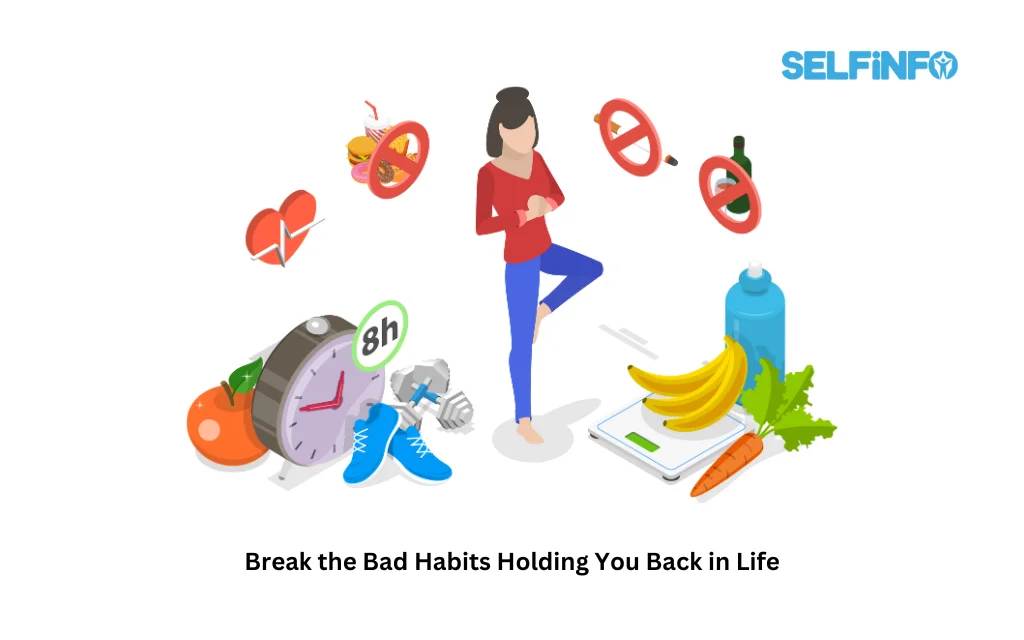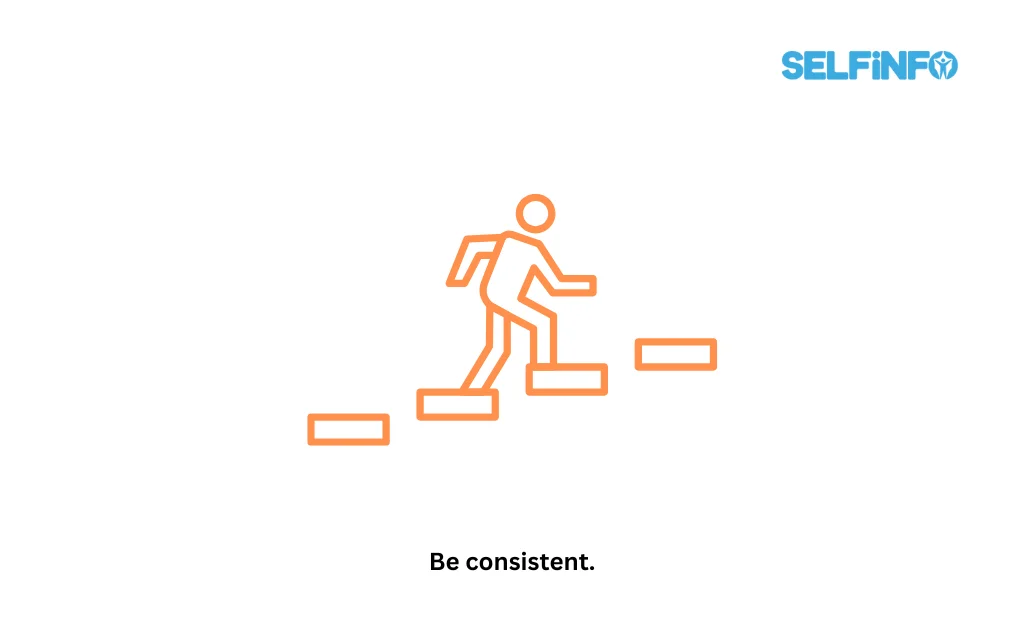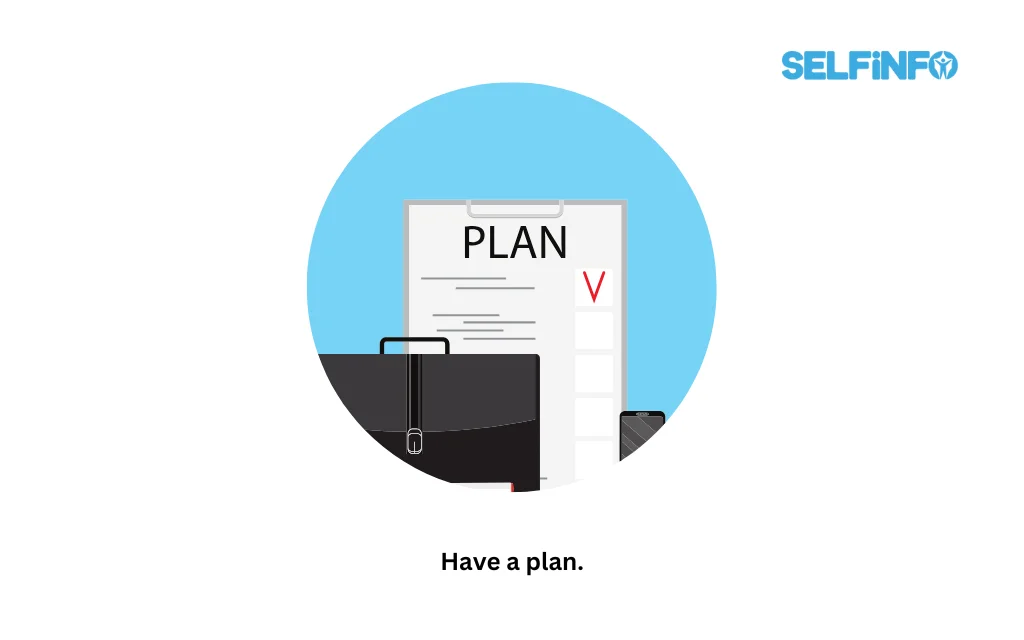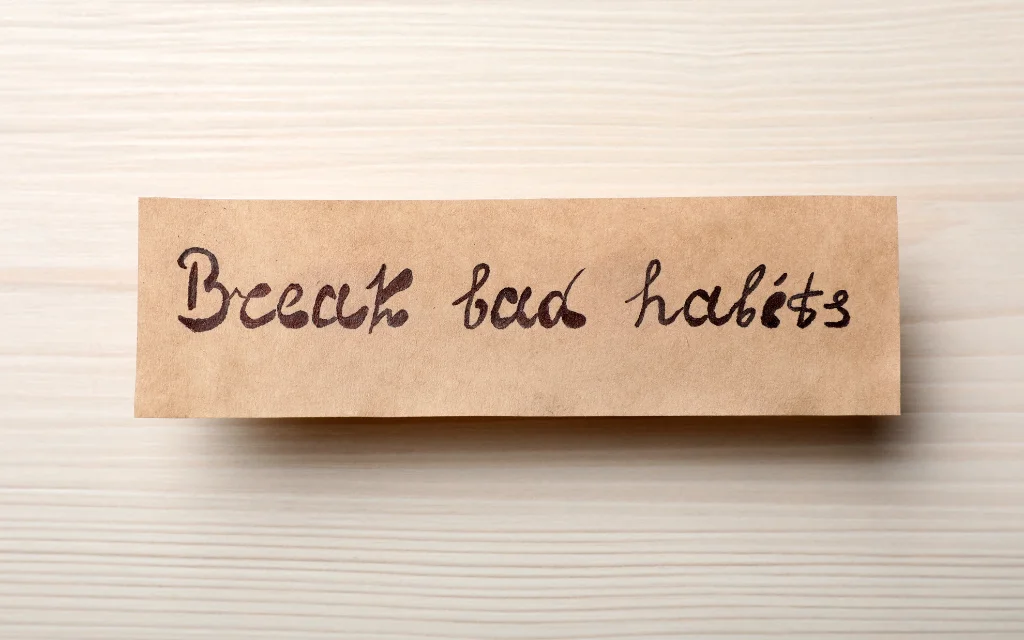Break free from bad habits. Many of our routines are so ingrained that we barely notice them, and when we do, we create excuses to keep them.
Perhaps it is time to try something new if you have tried to modify your behaviors without success. You will succeed if you follow these procedures.

1. Become aware of the status quo.
Does this sound like you? You resolve to take positive action for yourself. Perhaps you promise yourself that you will lose weight or use your time more wisely. You are enthusiastic and dedicated. You plod forward, setting a goal.
After a few days, you are doing fantastically. Then something occurs that causes you to veer off course. You feel inadequate. It looks like you can not accomplish your aim. You revert to your previous behavior.
This cycle continues to repeat itself.
Setting a goal before you have a complete understanding of your current circumstances is your first error.
Before you can even consider a remedy, you must describe the issue.
Consider what is happening right now before making any changes. Spend a week doing this.
During your observation, you can respond to the following queries:
- What terrible habit do you have?
- When you are doing your negative habit, how does it make you feel?
- When you are not doing it, how do you feel?
- Is there anything you usually do before or after the poor habit?
- Does the negative habit have a trigger behavior or emotion?
- What makes you desire to stop this behavior?
Reading these questions, nodding, and promising yourself that you would try to consider them over the course of the following week is insufficient.
Taking notes is the most effective technique to approach this task in a different way. Every night, write in a journal or use your smartphone to record the responses to these questions. Tell a friend over the phone what you saw each day.
This step’s best feature is that you can not fail. You are merely observing; you are not attempting to do anything.
I am currently working to break the bad habit of watching too much television.
I tell myself that I have to accomplish X, Y, and Z after work, but instead I watch fresh episodes of my favorite TV show and then a Netflix movie. Bam! I did not accomplish anything worthwhile for the entire evening. While occasionally having a free evening to do nothing is fantastic, this should not be the norm for most weeknights.
2. Use visualization.

The goals are excellent. If you do not know where you are going, you will not be able to get there. But for a goal to have significance, it must be more than just words on paper.
Because they lack a clear vision of what they will do once they succeed, many people never reach their goals.
Because they do not have a clear plan for what they will do with the money they save, someone who is trying to stop the habit of frivolous spending may find it difficult to avoid purchasing. The satisfying sense of purchasing prevails since that person might not have initially imagined the satisfying feeling of conserving money.
Feel the result with all of your senses rather than only stating a goal. Imagine how your life would change once you stop the habit. What would your everyday schedule entail? When you break the habit, will the people in your life change?
Try to visualize the logistics as well as the feelings you will experience after the habit is broken. Will you experience calmness, excitement, or equilibrium? Spend some time each day sitting with those feelings. Bring them to life so that your body and mind start to embrace the drive for change.
What can I personally see? I am feeling more content and happy with my life, working on my website more, going to the gym, changing jobs, and spending more time with my loved ones.
3. Recognize when you’re making excuses.
Everyone, myself included, makes excuses.
- I have time. I will get started tomorrow.
- This week, I accomplished enough. A couple more days can pass before it is finished.
- I wasted it playing games, thus I do not have time to do it today.
The most typical justifications in the book? “I do not want to” or “I can’t.”
“I do not do it today, so it seems too hard to change,” is what you are really saying.
Change is difficult, particularly if you have not received any rewards yet. Work is necessary for change.
We now return to steps 1 and 2. You can better predict what will work if you know what you are doing and what is not working.
Step 1: Every day at 11:00 at work, you realize that you are starving, and because you are so busy, you eat as many sweets as you can and feel terrible afterwards.
Step 2: After you lose weight, you see yourself in your favorite suit, feeling comfortable all day, and having steady energy to generate creative ideas for your job. A promotion results from this.
Every time an excuse comes to mind, you can overcome it by following steps one and two. You are aware of the things you wish to alter and the feelings you will experience after doing so. The only thing left to do is to confront the voices that warn you against doing it.
I envision myself working as a consultant for one of the top businesses in the world, traversing the world for various projects, resolving problems for my customers, and enhancing their solutions. Sitting in front of the TV and watching the upcoming Breaking Bad episode, I am aware that I will not be able to accomplish it.
4. Be consistent.

Consistency increases the likelihood of stopping a problematic habit, according to research. You are more likely to lose momentum than if you go to the gym every day if you promise yourself that you would only go on Monday mornings, Tuesday evenings, and Friday afternoons.
Setting it up this way while you are breaking a habit is helpful, even though it might not be feasible to do something every day for the rest of your life.
You could wish to cut off sugar. Your sugar cravings will soon be triggered at breakfast, lunch, and dinner if you allow yourself to indulge in a small treat each night. This habit can quickly grow into consuming a larger treat each night.
Reduce the alteration to a level that you can manage each day. According to studies, the average amount of time needed to break a habit ranges from 21 to 66 days, though this varies from person to person.
Once you feel that the bad habit has been broken, you can start experimenting with flexibility if you can make a little change every day for that long.
I do not watch as many movies as I used to, and I have come a long way in the last few weeks in terms of my future and potential career. I do not blame myself for occasionally letting myself spend a relaxed evening in front of the TV because I have broken the habit and now only do it occasionally.
5. Have a plan.

Consistency increases the likelihood of stopping a problematic habit, according to research. You are more likely to lose momentum than if you go to the gym every day if you promise yourself that you would only go on Monday mornings, Tuesday evenings, and Friday afternoons.
Setting it up this way while you are breaking a habit is helpful, even though it might not be feasible to do something every day for the rest of your life.
You could wish to cut off sugar. Your sugar cravings will soon be triggered at breakfast, lunch, and dinner if you allow yourself to indulge in a small treat each night. This habit can quickly grow into consuming a larger treat each night.
Reduce the alteration to a level that you can manage each day. According to studies, the average amount of time needed to break a habit ranges from 21 to 66 days, though this varies from person to person.
Once you feel that the bad habit has been broken, you can start experimenting with flexibility if you can make a little change every day for that long.
I do not watch as many movies as I used to, and I have come a long way in the last few weeks in terms of my future and potential career. I do not blame myself for occasionally letting myself spend a relaxed evening in front of the TV because I have broken the habit and now only do it occasionally.
